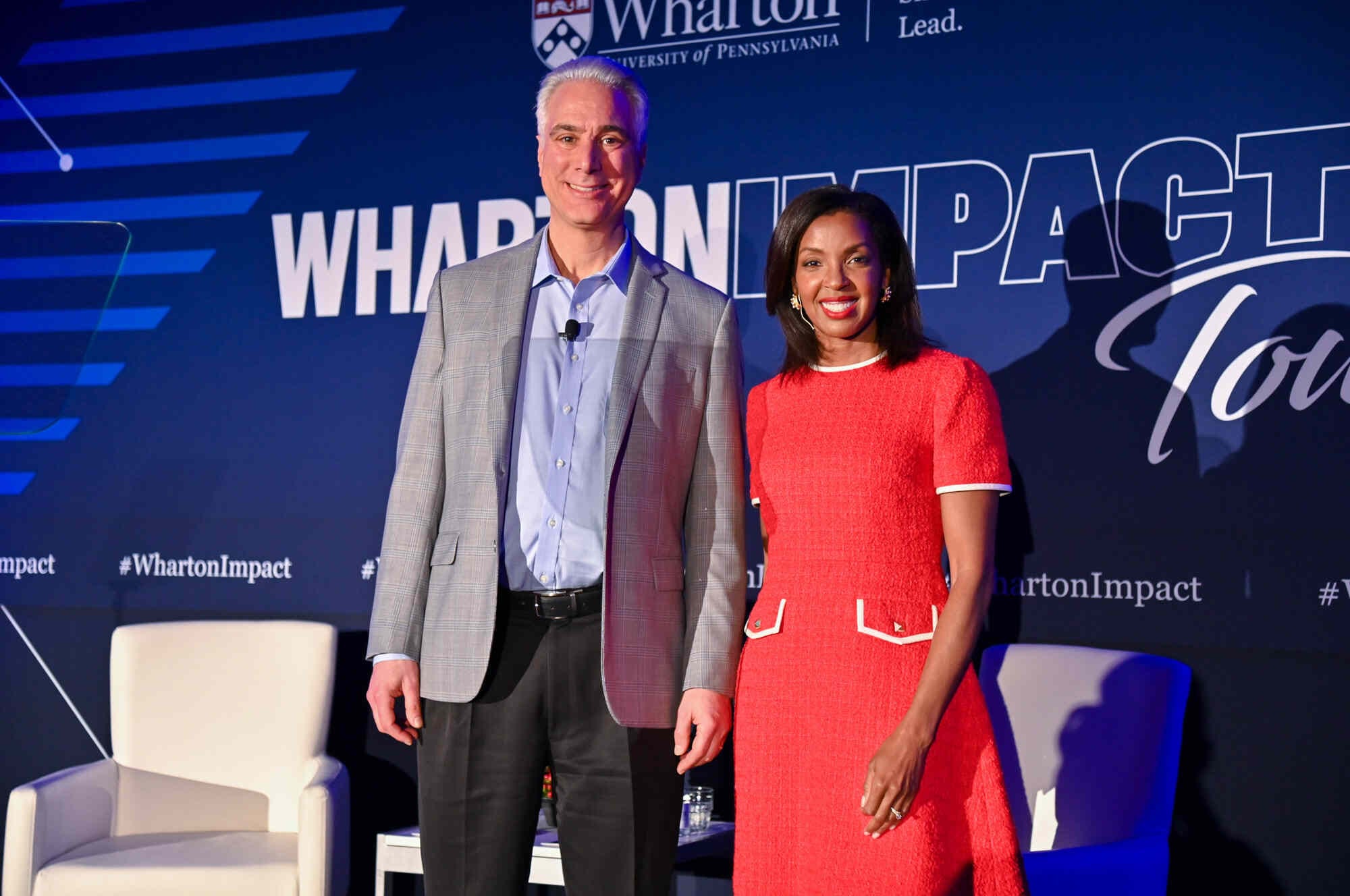Blockchain has impacted a range of industries from real estate to art to banking. It’s no surprise the technology is influencing the Wharton community and became the hot topic of the Wharton Impact Tour’s last stop in Miami.
“Is there controversy around blockchain?” Dean Erika James joked, as she started the conversation with Kevin Werbach, director of Wharton’s Blockchain and Digital Asset Project (BDAP), chair of the School’s Legal Studies and Business Ethics department, and renowned expert on the implications of emerging technologies.
But first, what exactly is blockchain? Werbach described it as a kind of database where there’s no central authority or administrator. This transaction ledger makes it easier to trade digital (also known as “crypto”) currency or non-fungible tokens (NFTs) such as art collectibles. The increased transparency and awareness of all transactions and supply can cut down on bad actors while improving company performance.
“Blockchain is the rails,” Werbach said. “That’s the road. Digital assets are the things that run on top of it. They’re representations of value. Dozens of companies with their own data and no one has global visibility. So if you have this one ledger that everyone can use, everyone can trust, then you can track all the way across it.”
In a city that has become a magnet for innovation, the topic of blockchain and cryptocurrency was a big draw for alumni both locally and outside Miami. “Cryptocurrency and South Florida seem to go together. It has been a tremendous area of growth,” said Jay Kingley WG88, president of the Wharton Club of South Florida.
Bryan Bloom WG14 also said he attended in part to learn more about blockchain. “I think the underlying technology of blockchain is something that’s going to transform the world,” he said. “You see a lot of the negative news and think that ‘oh, this is a dangerous investment’ but for me it’s something that can really be impactful, not just in the U.S. but across the world. Especially as we think about governments and graft and all the negative things associated with money. It’s one of those solutions we haven’t even unpacked yet.”
As a new resident of Miami, Bloom is part of a larger trend that Dean James touched on during the event. “We are witnessing Miami lead the country in exponential tech job migration — and tech job growth is running hand-in-hand with creating new entrepreneurial ventures and opportunities,” James said. Werbach agreed: “The energy, the diversity, the creativity, the risk-taking here, that’s what attracts people.”
With the buzz of Miami’s standing as both a tech and diversity hub, an audience member asked how blockchain could address issues of equity and improve opportunities. Werbach’s response focused on how the anonymity of blockchain could level the playing field for previously marginalized executives.
“A system that says ‘we don’t need intermediaries; we can trust the ledger’ and ‘we can have financial services that don’t go through traditional kinds of banking institutions’ — that’s appealing,” he said. “That, I think, has the potential to provide much greater financial inclusion.”
Another attendee asked where the U.S. stands in relation to India in the digital payment space. Werbach responded that many developing countries are ahead of the U.S., pointing to digital payment systems in Brazil and Kenya. Werbach keeps a global perspective on blockchain through BDAP’s collaboration on a “Decentralized Autonomous Organization Toolkit” with the World Economic Forum. “Blockchain and related technologies I think of as a toolkit,” he said. “You can experiment with its programmability. How do you want to design it? This is our chance to create the money of the rest of the 21st century.”
But how should the average business owner approach blockchain? “Companies really need to ask: What’s the value proposition? What is it that a blockchain-based solution can do better than what I’m doing now?” Werbach asked. “The challenge is for these digital assets to not just be about trading but actually delivering on that promise of a new financial system that’s open to all.”


























